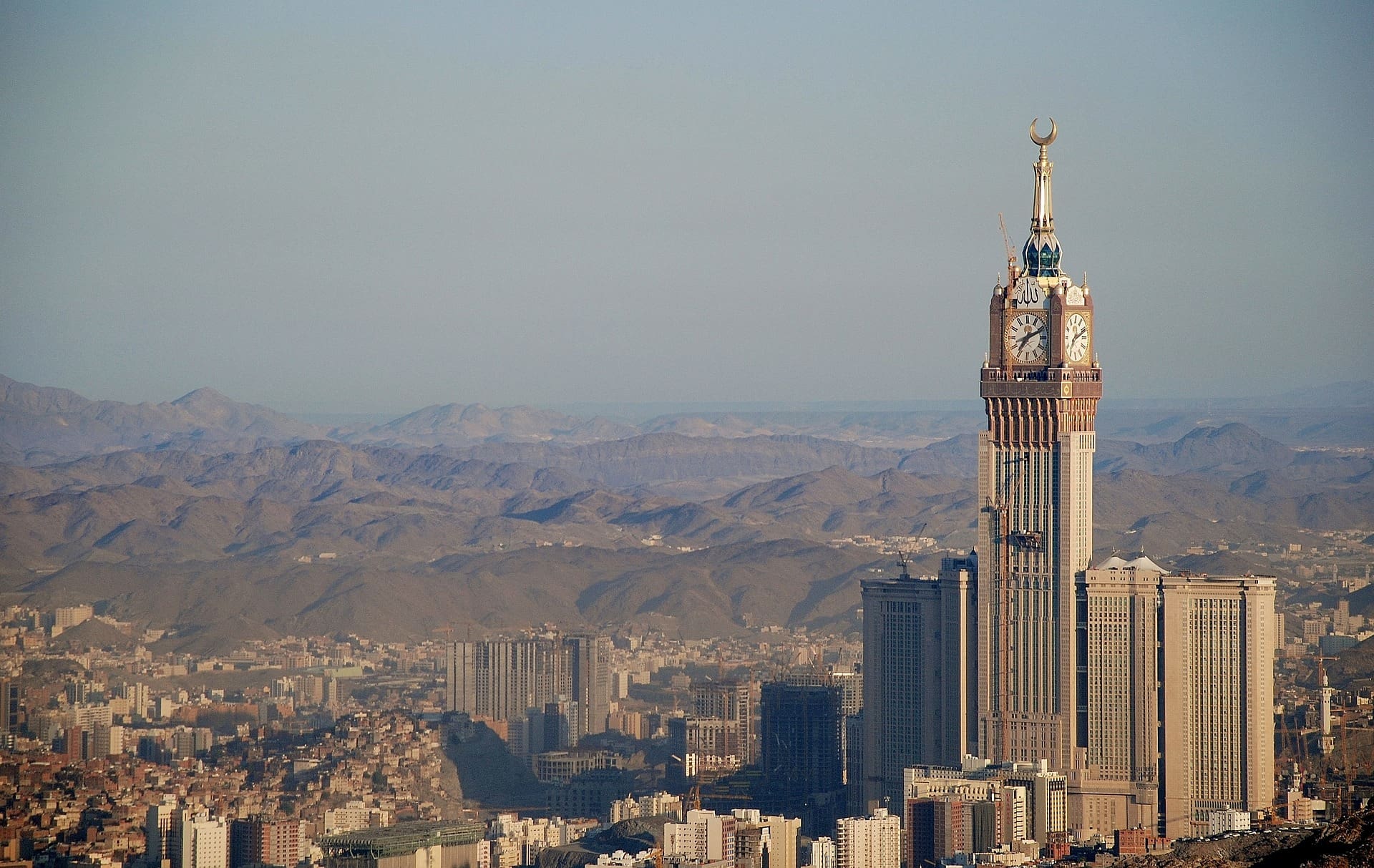
Moving from the UK to Saudi Arabia
📚 Financial Guidance for Expats in Saudi Arabia
This series provides clear, expert guidance for British expats living in Saudi Arabia—or planning to move there or return to the UK. From understanding UK tax, pensions, and succession planning in Saudi Arabia to navigating the financial implications of moving in either direction, these resources will help you make informed, confident decisions about your long-term finances.
Relocating to Saudi Arabia
Relocating to Saudi Arabia is a bold step that opens up a world of opportunities, from tax-free income to a thriving expat community and the chance to experience a rich and unique culture.
However, moving to Saudi Arabia from the UK involves more than just booking a flight and packing your bags.
There are essential financial, legal, and lifestyle considerations to plan for.
In this guide, we’ll explore the key aspects of moving to Saudi Arabia, share practical tips, and provide case studies to illustrate the process.
Whether you’re an expat in Riyadh, Jeddah, or heading to other parts of the Kingdom, preparation is key to a successful transition.
Key Considerations When Moving from the UK to Saudi Arabia
Understanding Residency Rules
Saudi Arabia has strict residency regulations, and all expatriates require a sponsor (kafeel) to live and work in the Kingdom.
Your employer typically acts as your sponsor and will arrange a work visa for you.
It’s essential to ensure all your documentation, including your employment contract, is in order before departure.
Navigating the Legal System
Saudi Arabia follows Islamic law (Sharia), which may differ significantly from the legal framework in the UK.
Understanding these laws and adhering to local customs is crucial.
This includes dress codes, alcohol restrictions, and rules around social behaviour.
Managing Finances Before and After the Move
- Banking: Setting up a Saudi bank account is a top priority once you arrive. Most expats use international banks with branches in Saudi Arabia, such as HSBC or Standard Chartered, to simplify money transfers.
- Savings Plan: Moving to Saudi Arabia is an excellent opportunity to save, thanks to the absence of income tax. Create a financial plan to make the most of this benefit.
Planning for Family
If you’re moving with family, research schooling options.
International schools are the most popular choice for expats, offering British, American, or IB curriculums.
Note that tuition fees can be high, so factor this into your budget if they are not covered by your employer.
Adapting to a Different Lifestyle
- Climate: Saudi Arabia is known for its hot climate, with summer temperatures often exceeding 40°C.
- Culture: While Riyadh and other cities are becoming more open to Western influences, respecting Saudi traditions and customs is vital for a smooth adjustment.
- Expat Communities: Engaging with expat groups can help you build a social network and find support during your transition.

Statutory Residence Test (SRT)
Download my FREE SRT Flowchart
The UK uses the Statutory Residence Test (SRT) to determine whether you are a UK resident for tax purposes. Check your status now . . .
Financial Checklist for Moving to Saudi Arabia
Before moving, ensure the following financial aspects are covered:
✔️ Notify HMRC of your move to avoid unnecessary tax complications.
✔️ Arrange for a clear record of your UK pensions and explore options to continue paying into a pension scheme while abroad.
✔️ Look to continue making National Insurance Contributions while you are living in Saudi Arabia.
✔️ Close or notify utilities and service providers in the UK.
✔️ Make sure that any life insurance policies that you have still cover you while living overseas.
✔️ Research the cost of living in Saudi Arabia. While salaries are competitive, expenses such as schooling, housing, and healthcare can add up.
Case Study: James and Sophie – Making the Most of an Expat Assignment in Saudi Arabia
Meet James and Sophie
James (56) and Sophie (53) are both British citizens.
They have three grown-up daughters who are now financially independent.
They’ve spent their entire lives in the UK but are about to embark on their first overseas adventure—a four-year expat assignment in Saudi Arabia.
James, an experienced executive, has been offered an exciting role on the NEOM project, while Sophie plans to take a break from work to fully embrace their new expat lifestyle.
Challenges James and Sophie Faced
As they prepared for their move, James and Sophie had several key concerns:
- Tax-Free Income: While their income in Saudi Arabia will be tax-free, they were unsure how best to save and invest their surplus income without access to UK savings vehicles like ISAs or pensions.
- Limited Financial Advice: They discovered that most UK-based financial advisers wouldn’t work with clients living overseas, leaving them feeling unsupported during this transition.
- Retirement Goals: They wanted to use this opportunity to set aside significant savings to boost their retirement fund while ensuring their investments were transparent, low-cost, and well-diversified.
- Cross-Border Complexity: They were unsure how their expat status might impact their long-term financial planning, especially when they returned to the UK after four years.
How a UK-Qualified Expat Financial Adviser Helped
James and Sophie decided to work with a UK-qualified independent financial adviser (IFA) who specializes in expat financial advice.
This decision proved to be a game-changer.
Step 1: Creating a Robust Financial Plan
The adviser worked closely with James and Sophie to understand their goals, timeline, and concerns.
Together, they created a clear financial plan designed to maximize their savings while they were in Saudi Arabia.
Step 2: Transparent and Low-Cost Investments
Their adviser recommended a well-diversified investment strategy that was tailored to their unique needs as expats. This solution was:
- Cost-Effective: Avoiding unnecessary fees that could eat into their returns.
- Transparent: Giving James and Sophie full visibility over their investments.
- Globally Diversified: Reducing risk by spreading investments across different regions and sectors.
Step 3: Cross-Border Expertise
The adviser ensured that their plan aligned with both UK and Saudi Arabian financial regulations.
They also factored in their eventual return to the UK, so James and Sophie could enjoy a smooth financial transition back to retirement.
The Results
By working with a specialist expat IFA, James and Sophie were able to:
- Save Tax-Free Income Effectively: Their adviser helped them make the most of their surplus income during their time in Saudi Arabia.
- Enjoy Peace of Mind: They knew their investments were being managed professionally, with a clear focus on their long-term goals.
- Boost Their Retirement Savings: They significantly increased their retirement fund during their expat assignment, setting them up for a comfortable future back in the UK.
- Embrace the Expat Experience: With their financial concerns addressed, they were free to fully enjoy their new lifestyle and the adventure of living in Saudi Arabia.
Top Tips for Expats Moving from the UK to Saudi Arabia
Here’s a quick-reference table to help you navigate the move:
Area | Advice |
| Residency | Ensure your employer arranges a valid work visa before your arrival. |
| Banking | Open an offshore bank account to simplify transactions. |
| Tax Compliance | Inform HMRC of your move to avoid dual tax obligations. |
| Schooling | Budget for international school fees if moving with children. |
| Healthcare | Invest in comprehensive health insurance, as expats are not covered by public services. |
| Savings and Investments | Take advantage of tax-free income to grow your savings and investments. |
| Lifestyle | Respect Saudi laws and customs to integrate smoothly into society. |
Embracing Life in Saudi Arabia
Saudi Arabia’s Vision 2030 initiative has opened the country to new opportunities for expats, creating a vibrant environment where tradition meets modernity.
Cities like Riyadh and Jeddah offer world-class infrastructure, while the Kingdom’s cultural heritage provides endless opportunities for exploration.
While moving to Saudi Arabia involves adjustments, the experience can be incredibly rewarding.
With proper financial planning, you can focus on enjoying your new adventure without worrying about your financial security.
Are You Moving to Saudi Arabia?
If you’re relocating to Saudi Arabia and need help with your financial planning, we’re here to guide you.
Whether it’s investing your savings, maintaining your UK pensions, or planning your retirement, professional advice can make all the difference.
Contact us today to start planning your financial future with confidence!
Relocating from the UK to Saudi Arabia
FAQs
UK citizens must obtain a work visa to live and work in Saudi Arabia. This process typically involves securing a job offer from a Saudi employer who will act as your sponsor (kafeel) and facilitate the visa application on your behalf.
The sponsorship system requires expatriates to have a Saudi sponsor, usually their employer, who is responsible for their legal status and employment in the country. The sponsor handles visa applications, renewals, and can influence the expatriate’s ability to change jobs or exit the country.
Yes, Saudi Arabia follows Islamic law (Sharia), which influences its cultural and legal practices. It’s important to respect local customs, such as dressing modestly, adhering to gender segregation in certain settings, and observing restrictions on alcohol consumption and public behavior.
Yes, expatriates can open bank accounts in Saudi Arabia. Many international banks operate in the country, and your employer may assist you in setting up an account upon arrival. Having a local bank account is essential for receiving your salary and managing daily expenses.
Saudi Arabia offers various international schools that follow British, American, or International Baccalaureate (IB) curricula. These schools are popular among expatriate families, but tuition fees can be high. It’s advisable to research and budget for these expenses, especially if they are not covered by your employer.
Yes, Saudi Arabia has a range of healthcare facilities, including public hospitals and private clinics. Many employers provide health insurance for their expatriate employees, which grants access to private healthcare services. It’s important to understand the specifics of your health coverage and the quality of local medical facilities.
Saudi Arabia does not impose personal income tax on salaries, allowing expatriates to benefit from tax-free earnings. However, it’s crucial to consider your tax obligations in your home country, as you may still be liable for taxes there.
Expatriates can drive in Saudi Arabia using an International Driving Permit (IDP) along with their valid UK driving license for a limited period. For long-term stays, it’s advisable to obtain a Saudi driving license, which may require passing a driving test and meeting other local requirements.
The cost of living in Saudi Arabia varies depending on factors such as housing, schooling, and lifestyle choices. While some expenses like fuel and local goods may be cheaper than in the UK, others, such as international schooling and imported products, can be more expensive. It’s important to research and plan your budget accordingly.
Yes, major cities like Riyadh and Jeddah have active expatriate communities and offer various social and recreational activities. These include sports clubs, cultural events, and social gatherings. Engaging with these communities can help you build a social network and ease your transition into life in Saudi Arabia.

Talk to an Expert
Getting reliable advice about moving from the UK to Saudi Arabia shouldn’t feel complicated – or out of reach.
I’m Ross Naylor, a UK-qualified Chartered Financial Planner and Pension Transfer Specialist with nearly 30 years’ experience helping British expats navigate international tax planning, contract benefits, pension considerations, and cross-border financial strategies when relocating abroad.
I firmly believe your location in the world should never be a barrier to expert, impartial, and transparent financial advice you can trust.
Whether you’re negotiating an expat package, planning tax residency changes, managing UK assets while abroad, or preparing for the implications of future UK return, I’ll help you make confident, well-informed decisions aligned with your long-term goals.
Book a confidential consultation


